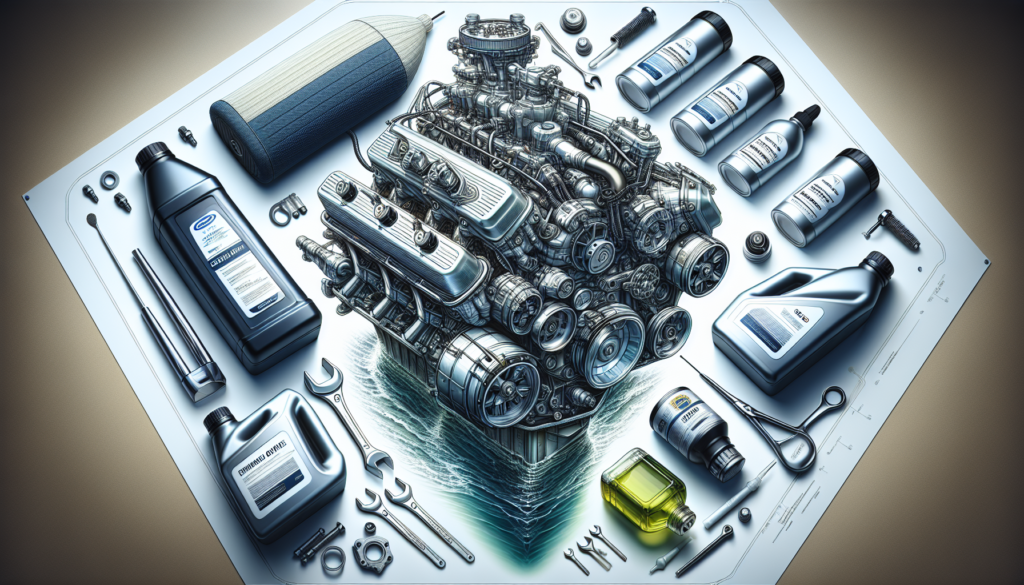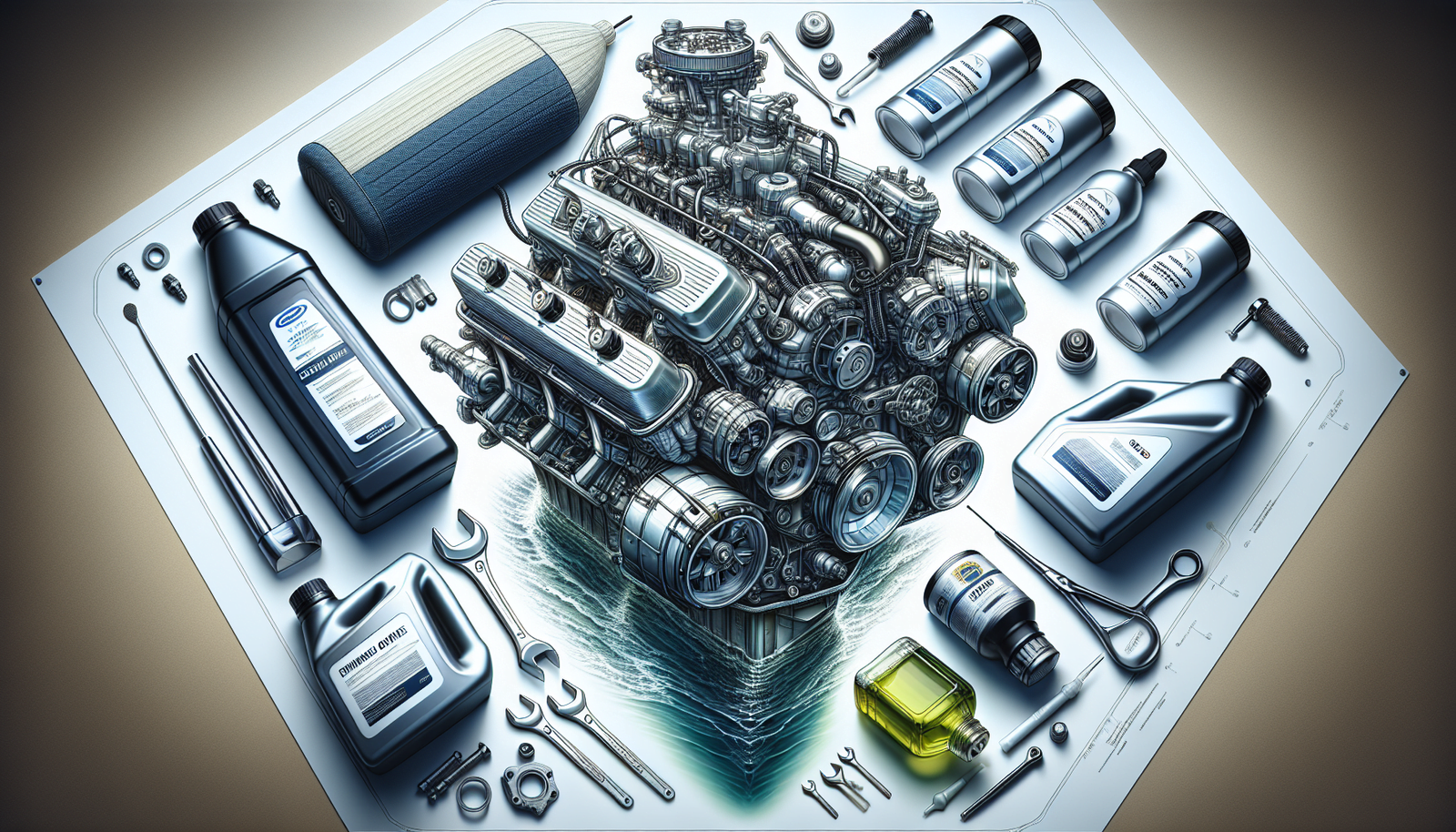Cherish those moments on the open water with your recreational boat running smoothly and effectively. In the upcoming article, “Tips For Maximizing The Lifespan Of Your Recreational Boat Engine,” you’ll discover essential maintenance tips and tricks that will significantly prolong the life of your boat engine. Transforming you into a savvy boat owner who can effectively prevent costly engine repairs while enhancing the overall sailing experience. You might be surprised at just how straightforward and manageable caring for your boat’s engine can be. Learn how to sail smart and preserve the heart of your beloved watercraft.
Understanding Your Boat Engine
Understanding your engine is the first step in ensuring it runs smoothly and lasts a long time. This doesn’t necessarily mean you have to become a certified mechanic, but gaining a basic understanding can go a long way.
Know the basics of a boat engine
Just like a car engine, a boat engine burns fuel and turns it into motion. However, there are important differences between boat engines and car engines that you should be aware of. For one, boat engines are often in a corrosion-prone environment that requires special materials and coatings.
Learn the main parts of the engine
The main parts of any engine include the cylinder, piston, intake and exhaust valves, spark plug, and connecting rod. Knowing where these are and what they do can give you a clear idea of how your engine works, and alert you to potential problems down the line.
Understand how the engine works
Understanding how your engine works is also critical. The timing of the spark from the spark plug, the opening and closing of the valves, and the compression and expansion of the piston all have critical roles in your engine. Knowing how these processes work can help you pinpoint and troubleshoot issues before they become severe.
Ensuring Regular Maintenance
Like any mechanical device, your boat engine needs regular maintenance to keep running smoothly and prevent unnecessary wear and tear.
Set up a maintenance schedule
Maintenance needs can depend on the usage and age of your engine. A good rule of thumb is to perform routine maintenance every 100 hours of operation or at least once a year, even if you don’t use your boat that often.
Check oil levels regularly
Your engine needs oil to lubricate its moving parts and protect them from damage. Checking your oil regularly can help ensure your engine is adequately lubricated and can alert you to potential leaks or other issues.
Replace filters when needed
Filters prevent debris and other contaminants from getting into your engine and causing damage. Over time, the filters can become clogged and need to be replaced.
Reducing Engine Wear and Tear
Even with regular maintenance, your engine will experience wear and tear. However, there are steps you can take to minimize this and prolong the life of your engine.
Prevent the engine from overheating
Overheating is a common cause of engine damage. Regular checks on your cooling system and avoiding running your engine at high speeds for long periods can prevent overheating.
Avoid running at high speeds for extended periods
Running your engine at high speed causes it to work harder and can lead to excessive wear. By keeping your speed moderate and avoiding long periods at high speed, you can reduce wear and tear on your engine.
Use appropriate gear ratios
Using the wrong gear ratio can cause your engine to work harder than necessary, leading to unnecessary wear and tear. Make sure you’re using the correct gear ratio for your speed and load to protect your engine.

Properly Winterizing the Boat Engine
If you live in an area with freezing temperatures during the winter, it’s important to winterize your boat engine to protect it from the cold and prevent damage.
Drain water from the system
When winterizing your boat, the first step is to drain all the water from the engine and cooling system. Leaving water in the system can lead to freezing, expansion, and damage.
Use antifreeze solution
After draining the water, it’s important to fill the system with an antifreeze solution that’s specifically designed for boats. This will protect your engine against freezing temperatures and corrosion.
Clean and lubricate the engine
Winterizing is a good time to give your engine a thorough clean and lubrication. This will protect it from rust and corrosion and ensure it’s ready to go when you’re ready to hit the water again.
Correct Fueling Practices
Correct fueling practices are vital to the longevity of your boat engine.
Always use fresh and correct fuel
Different engines require different types of fuel, so make sure you’re using the correct type for your engine. In addition, always use fresh fuel as old or contaminated fuel can cause damage.
Avoid overfilling the tank
Overfilling the fuel tank can lead to spills and can damage your engine and the environment. It’s best to fill the tank to about 90% capacity to allow for expansion.
Watch out for fuel leaks and resolve quickly
If you notice any signs of a fuel leak, it’s important to address it immediately. Not only can fuel leaks lead to engine damage, but they can also pose serious safety hazards.
Keeping the Engine Clean
Keeping your engine clean can reduce wear and tear and help it run more efficiently.
Clean the exterior regularly
Regularly cleaning the exterior of your engine can prevent oxidation and corrosion, extending the engine’s lifespan.
Check and clean the system inside
Just like the exterior, the interior of your engine also needs regular cleaning. Deposits and debris can build up, causing damage and reducing efficiency.
Avoid rough cleaning materials that can cause damage
When cleaning your engine, be careful to avoid abrasive materials that can scratch or damage the engine parts. Gently wipe down surfaces with a soft cloth and use appropriate solvents and detergents for deeper cleaning.
Use of Quality Parts and Fluids
Opt for OEM parts for replacement
When it comes time to replace parts on your engine, it’s important to use high-quality parts. Opt for Original Equipment Manufacturer (OEM) parts whenever possible, as these are made to the same specifications as the original parts in your engine.
Use high-quality oil and lubricants
High-quality oils and lubricants can better protect your engine from wear and tear and can provide better performance.
Invest in good quality fuel
Just as with the parts, it’s also important to use high-quality fuel in your engine. This can protect your engine from harmful deposits and other potential damage.
Routinely Check the Cooling System
Look out for damages in the cooling system
An efficient cooling system helps to prevent your engine from overheating. Regular inspections can identify any damages or leaks for timely repair.
Replace worn out parts
If parts in the cooling system are worn or damaged, they’ll need to be replaced promptly to prevent additional damage and maintain efficient cooling performance.
Check the coolant level regularly
In addition to checking for damage, it’s also important to check the coolant level regularly and refill it if necessary.
Reducing Corrosion and Rust
Apply corrosion-resistant coating
Corrosion can be a big problem for boat engines. Regularly applying a corrosion-resistant coating can help protect against this.
Use zinc anodes for additional protection
Zinc anodes “sacrifice” themselves through corrosion to protect your engine’s more important parts. Regularly inspect and replace these anodes to keep your engine safe from corrosion.
Regularly check for visible signs of rust and corrosion
It’s also important to visually inspect your engine for signs of rust or corrosion, as this can lead to serious damage if left untreated.
Training for Proper Operation
Correct operation of your boat’s engine can not only increase its lifespan but also improve your boating experience.
Educate yourself on efficient operation
Learning how to operate your boat efficiently can significantly reduce wear and tear on your engine, saving you money and extending the life of your boat.
Avoid unnecessary idling
running your boat’s engine at a low speed (idle) for extended periods can create unburned fuel in the exhaust system, over-cool the engine, and increase wear.
Understand the gauges and indicators
Understanding and paying attention to your boat’s gauges and indicator lights can help you spot potential problems early and prevent extensive damage. This includes paying attention to your oil pressure, engine temperature, and tachometer (engine speed) gauges.

